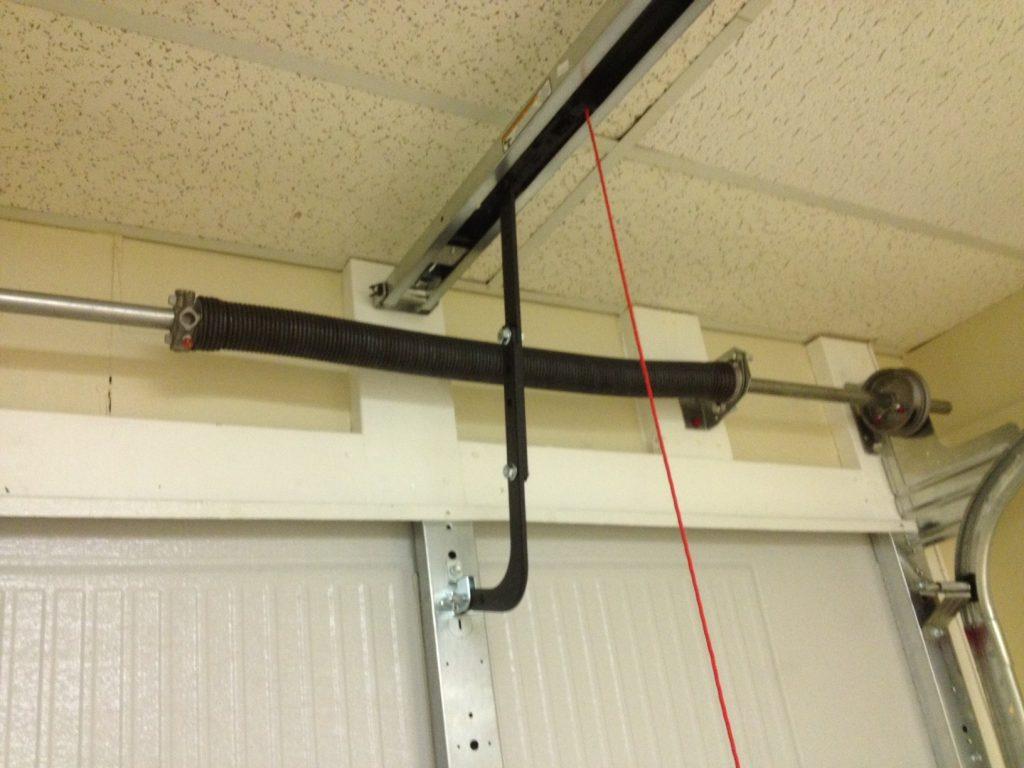What Causes Garage Door Springs to Break? Have you ever wondered why garage door springs break unexpectedly? In this informative guide, we’ll explore the various factors that contribute to garage door spring failures and provide insights into preventing this common issue.

Understanding the Dilemma: What Causes Garage Door Springs to Break?
Garage door springs play a crucial role in the smooth operation of your overhead door. When these springs break, it can lead to inconvenience and potential safety hazards. Let’s investigate the reasons behind garage door spring breakages and discuss measures to avoid such situations.
- Normal Wear and Tear: The most common cause of garage door spring failures is normal wear and tear. Springs are under immense tension, supporting the weight of the door each time it opens and closes. Over time, this continuous stress can lead to weakening and eventual breakage of the springs.
- Lack of Maintenance: Regular maintenance is vital for the longevity of garage door springs. Many homeowners overlook the importance of lubricating the springs and ensuring they are in good condition. Without proper maintenance, springs are more prone to corrosion and premature failure.
- Rust and Corrosion: Exposure to the elements, especially in regions with high humidity or frequent rainfall, can lead to rust and corrosion on garage door springs. Rust weakens the metal, making the springs more susceptible to breaking. Routine inspections and applying lubricants can mitigate this risk.
- Incorrect Spring Type or Size: Installing the wrong type or size of springs for your garage door can contribute to premature breakages. It’s essential to use the springs recommended by the door manufacturer or seek professional advice to ensure proper balance and function.
- Extreme Temperature Fluctuations: Drastic temperature changes, especially in areas with harsh climates, can affect the flexibility and strength of garage door springs. Regularly inspecting and addressing issues related to temperature fluctuations can prevent unexpected breakages.
Preventive Measures to Avoid Garage Door Spring Breakages
- Regular Lubrication: Apply a silicone-based lubricant to the springs at least twice a year. This reduces friction and minimizes wear, extending the lifespan of the springs.
- Scheduled Inspections: Perform visual inspections of the springs, cables, and other components regularly. Look for signs of wear, rust, or any abnormalities. Promptly address any issues you discover.
- Professional Maintenance: Schedule professional garage door maintenance annually. A trained technician can identify potential problems and ensure that all components, including the springs, are in optimal condition.
- Balance and Tension Checks: Periodically check the balance and tension of your garage door. Imbalances can put undue stress on the springs. If you notice any issues, consult a professional for adjustments.
- Weatherproofing: Implement weatherproofing measures to protect your garage from extreme weather conditions. This includes sealing gaps, applying weatherstripping, and addressing any issues that may expose the springs to the elements.
Read too: Why Does My Liftmaster Garage Door Opener Reverses When Closing? Troubleshooting Woes
Conclusion
Understanding what causes garage door springs to break is crucial for homeowners looking to maintain the functionality and safety of their garage doors. By addressing common factors such as wear and tear, lack of maintenance, and environmental considerations, you can significantly reduce the likelihood of unexpected spring failures. Implementing preventive measures and seeking professional assistance when needed will contribute to the longevity of your garage door springs, ensuring smooth and reliable operation for years to come.



Leave a Reply